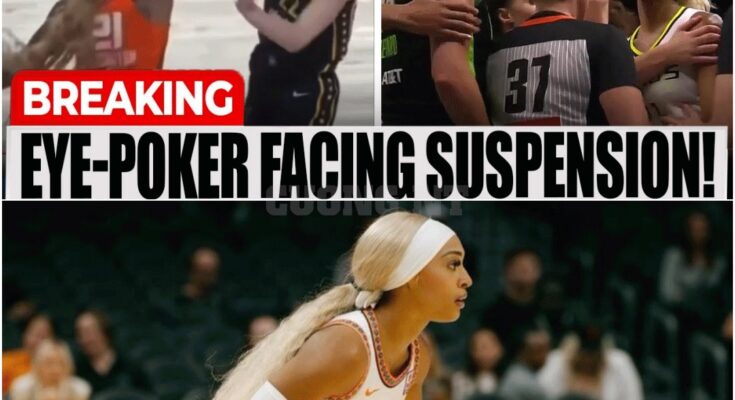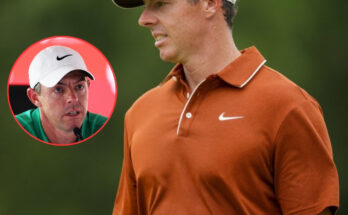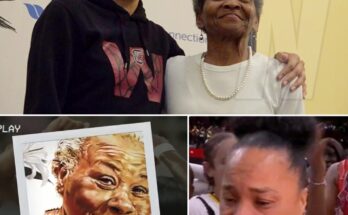DiJonai Carrington Faces Suspension for Season of Reckless Fouls—Is the WNBA Doing Enough to Protect Its Stars?
DiJonai Carrington may not be leading the WNBA in points, rebounds, or assists—but she’s miles ahead in one very alarming stat: flagrant fouls. In just over a month into the 2025 season, Carrington has already racked up three flagrant fouls—more than most players accumulate in an entire year. And these aren’t just minor infractions. These are dangerous, reckless plays that have resulted in injuries to both opponents and her own teammates.

Let’s start with what fans are calling her most reckless moment of the season so far. On May 21, during a matchup between the Dallas Wings and Minnesota Lynx, Carrington came flying in behind Jessica Shepard on a fast break. What she called a defensive attempt ended with her swiping Shepard in the face so violently that Shepard crashed to the floor. But the chaos didn’t stop there—Carrington’s own teammate, Paige Bueckers, had to dive in to break the fall, injuring herself in the process. One play, two injured players. The referees called it a flagrant one, but many argue it should’ve been a flagrant two.
This wasn’t a one-off mistake. Just weeks later, Carrington was at it again—this time against Skylar Diggins of the Seattle Storm. With less than four minutes left in the game, Diggins was on a fast break when Carrington chased her down and delivered a hard shot to the head mid-air. Diggins hit the court hard and stayed down, with replay footage confirming there was zero chance Carrington could’ve made a clean play on the ball. It was a classic wind-up, follow-through contact that fans and analysts alike slammed as dangerous and unnecessary.
And if you thought two reckless plays would be enough, Carrington made it a trifecta. Earlier in that same Seattle game, she slid her foot under Gabby Williams’ shooting motion—a move that can easily result in a severe ankle or knee injury. Williams rolled her ankle, and commentators quickly labeled the play “reckless,” with social media erupting in frustration over Carrington’s repeated dirty tactics.
These moments aren’t isolated. They’re part of a growing pattern of dangerous behavior dating back to last season. In the 2024 playoffs, Carrington made headlines for poking Caitlin Clark in the eye during her postseason debut. Clark was left with a black eye in a high-stakes playoff game. The hit not only affected Clark’s performance, but it also swung momentum in Connecticut’s favor, helping them eliminate the Indiana Fever. While Carrington claimed it was accidental, her track record tells a different story.
But Carrington’s issues extend beyond just physical play. Following a loss to the Chicago Sky on May 30, Carrington confronted referee Roy Gulbeyan in a post-game exchange that escalated so quickly the official called security for backup. Security had to physically stand between Carrington and the officiating crew—an unprecedented move in WNBA history. Carrington later claimed the situation was a “microaggression” on social media, further inflaming the conversation with her refusal to take accountability.
This season has been a crash course in how not to represent your team or your league. Carrington’s blend of on-court recklessness and off-court defiance has made her a magnet for controversy. The WNBA has long promoted physical play as part of the league’s identity, but there’s a line between physical and dangerous—and Carrington keeps crossing it.
Fans are now demanding real consequences. Three flagrant fouls, multiple injuries, an incident with security, and a growing reputation as the dirtiest player in the league cannot be brushed aside as just “competitive spirit.” Carrington’s conduct poses a legitimate threat to player safety, and her suspension is not just warranted—it’s overdue.
The league must decide what kind of basketball it wants to promote. Clean, competitive play from athletes like Caitlin Clark, Lexie Hull, and Aaliyah Boston? Or the kind of dangerous, reckless basketball that gets players injured and drives fans away? Carrington’s suspension is a step in the right direction, but it can’t be the end of the conversation.
If the WNBA truly wants to grow and protect its players—especially the stars drawing national attention and boosting ratings—it must set a standard of accountability that applies to everyone, no matter how aggressive or emotional the game gets.


